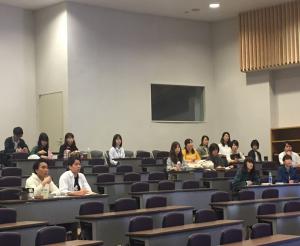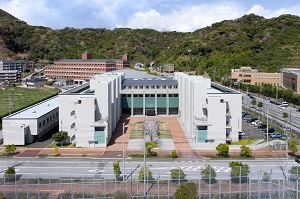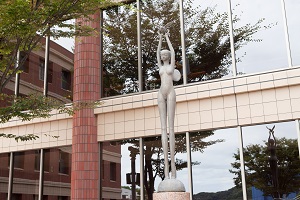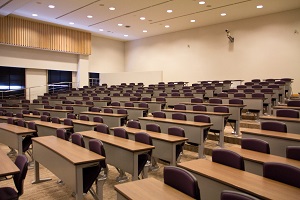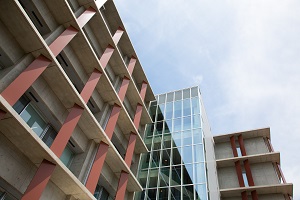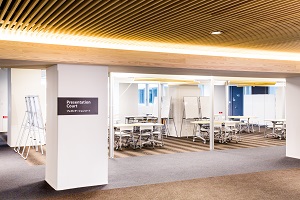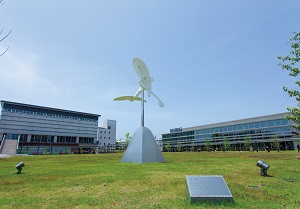本文
【University of Kochi】Sharing Information: Risk in Communication Foreign Residents in the Event of Disaster in Japan(2018年4月9日)
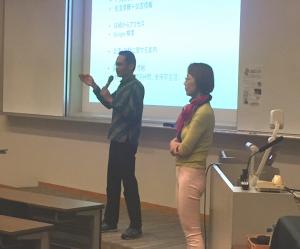
During lunch time on April 9, 2018 in Ike campus, University of Kochi, Prof. Sakiko Kanbaraa professor at the Faculty of Nursing University of Kochiheld a briefing session on the Nankai Trough Earthquake countermeasures. Prof. Kanbara presented about the risk in communication foreign residents in the event of disaster in Japan. According to Prof. Kanbara, foreign residents are more at high risk and vulnerable in times of disaster in Japan due to difficulties arising from their cultural differences and language barriers they face in obtaining crucial information. Thus, Prof. Kanbara attempts to initiate much needed discussion on how to respond to the needs of foreigners and that even the information illiterate can easily use. In this session, Prof. Kanbara invited a graduate student of the DNGL program originally from Indonesia, Mr. Hastoro, as foreign student and resident who has been living in Kochi since April 2015. The college students and faculty members of University of Kochi also attended to participate in this briefing session.
Hastoro shared his daily life experiences as foreigner for three years living in Kochi. He said that Kochi is one of the prefectures in Japan which has geographical conditions that make it prone to being affected by natural disasters including typhoons every year and the Nankai Trough Earthquakes. For the non-Japanese residents who have insufficient ability in the Japanese language and fewer local social networks, the experience could be horrifying, not being able to understand news or instructions provided at evacuation centers that may prove critical to survival. This because the information disseminated in Japan after the disasters is mainly in the Japanese language. Many non-Japanese do not know what to do when an earthquake hits. As results, this situation could develop chaos and the non-Japanese residents in Kochi are panic. Therefore, Hastoro realized that it is important for foreign residents in Japan to prepare as much as we can beforehand for instance by participating regularly disaster drills. It is also necessary for non-Japanese residents to strengthen networking with Japanese people at the local level. Additionally, disaster professionals and citizens in Japan who are neighbors to the foreign residents need to raise awareness to and deepen understanding of cultural differences of their neighbors.(Summarized by Hastoro Dwinantoaji)
